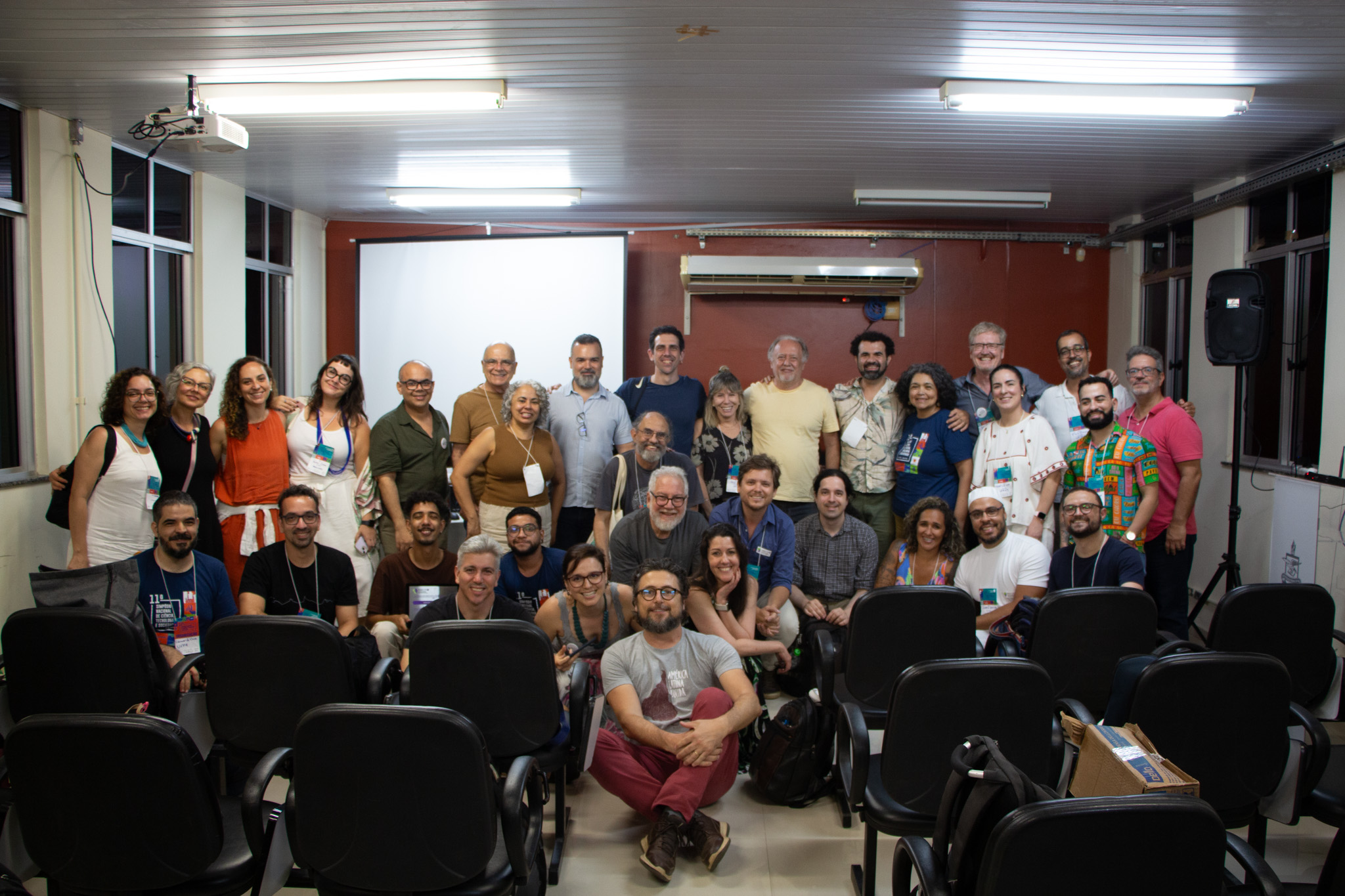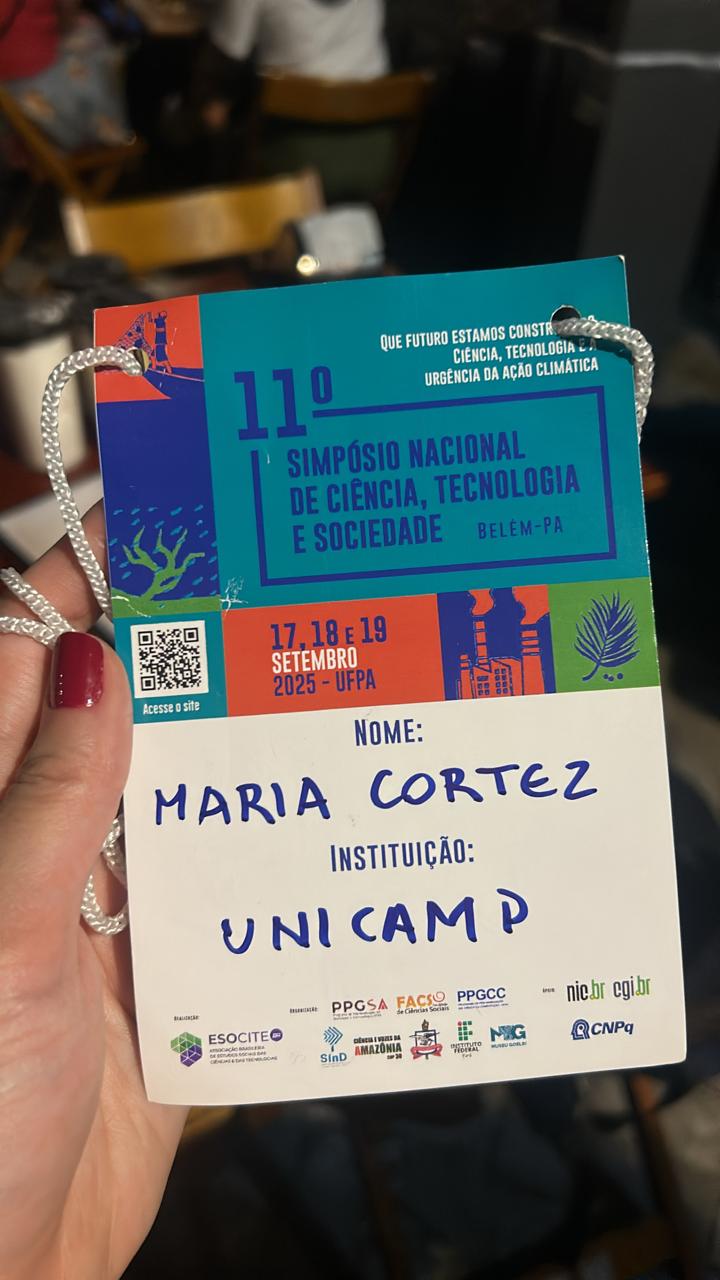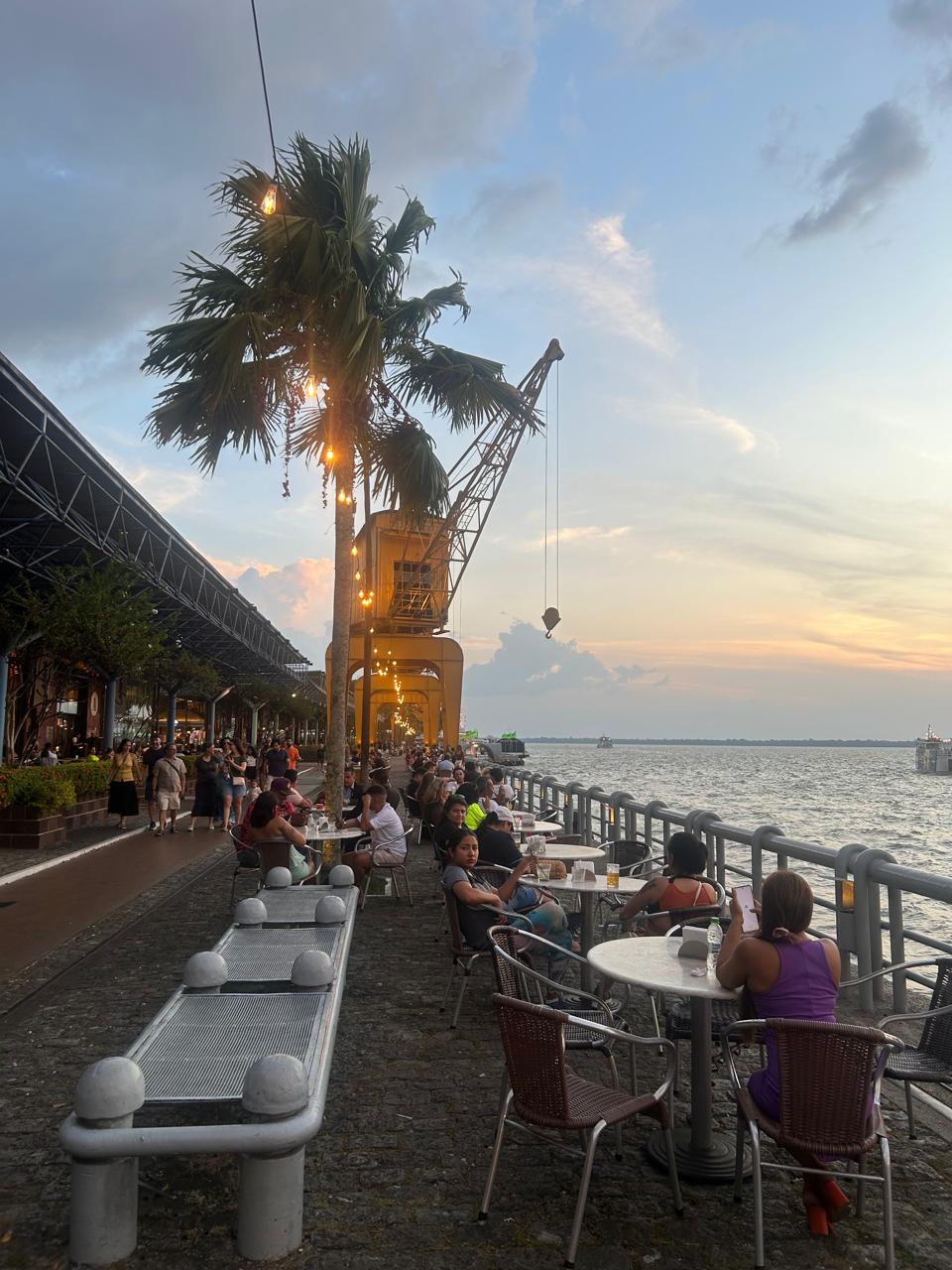The richness of STS scholarship in Brazil: takes on the 11th ESOCITE.BR Symposium
Maria Cortez Salviano20/11/2025 | Report-back
Some may say that an academic field can be established when the same authors are continuously referenced by their peers. Others, that the themes that are discussed most frequently are the ones responsible for framing a group. What happens, then, when the canon is not enough to understand a reality? Or if the issues that need to be addressed are not necessarily the same ones? In the Brazilian STS field, those questions are prominent. Whereas we honor the Science, Technology, and Society studies, mostly produced in North America and Europe, there is also a continuous effort to promote ways of thinking and doing that are fundamentally ours. Those aspects were an important part of the 11th National Symposium on Science, Technology and Society, which happened on September 17-19, 2025, in Brazil.
The symposium is organized biannually by the Brazilian Association for the Social Studies of Science and Technology (ESOCITE.BR, on the abbreviation in Portuguese). This year, the event took place in Belém, the same city that, two months later, would receive the 30th Conference of the Parties (COP30). It is also important to note that this was the first time the Northern region of the country hosted the ESOCITE symposium. This movement was an attempt to decentralize the STS discussions in Brazil, usually concentrated in the South and Southeast regions, and bring to attention many Amazonian specificities.

Part of the organizing committee of the 11th ESOCITE.BR meeting [Image credit: ESOCITE.BR]
At a vibrant Northern capital, surrounded by the Amazonian forest and just a few days before the COP30, the Brazilian STS event could not escape the concerns taking over the region. In that sense, it is not a coincidence that its main theme of this edition was “What future are we building? Science, technology, and the urgency of climate action”.
Critical reflections on scientific and technological development and the urgency of environmental issues were at the spotlight during the event, but the debates were not restricted to that topic. Including 26 thematic groups, 8 roundtables, 5 mini-courses, 5 workshops, 4 forums, 4 agglomerates and 2 special lectures, the diversity of the discussions were a reflection of the interdisciplinary richness of Brazilian STS studies.
Climate emergency was addressed in various ways. Despite the concern about how scientific and technological development could help mitigate climate change, Brazilian scholars are not interested only in what academia, industry and other formal science and technology institutions can do. The roles different groups can have on this matter were a main part of the research presented in Belém, including activism, social movements and local communities’ activities.

The symposium badge [Image credit: Author]
Also prominent were discussions about the controversies and disputes minorities deal with in their fight for climate justice, especially on agriculture and water systems. Their fights for land or water and the possible solutions pervaded different thematic groups, roundtables and forums. Besides, many Brazilian scholars brought to the forefront the role of traditional knowledges, such as the ones produced by indigenous and black communities, in climate action.
In parallel, another important theme was scientific and technological sovereignty in Brazil. Data mining, artificial intelligence, digital platforms and social media were among the top concerns, attached to discussions about digital colonialism and local technological development. Also a key part of the debates were the topics of surveillance, misinformation, and impacts of artificial intelligence on teaching and learning.

After the event, participants were able to enjoy some of the amazing views from Guamá River, in Belém [Image credit: Author]
Besides the relevance of the academic discussions, the event was also an opportunity for the Brazilian STS community to strengthen its ties. In that sense, the ESOCITE.BR promoted the launch of the Brazilian Journal of STS (Revista Brasileira de Estudos CTS), which will publish works based on an inter- and transdisciplinary perspective. As disclosed by the event organization, the new journal intends to highlight the cultural, political, economic, and social aspects involved in scientific and technological practices. The aim is to foster dialogue across diverse fields of knowledge and broaden the scope of critical reflections in STS.
Additionally, The Brazilian STS association presented the winners of the 4th ESOCITE.BR Prize, which laureates academic works in the field of STS in Brazil. The award, an important recognition for young scholars, has categories for doctoral theses, master's dissertations, and undergraduate final projects finished within the biannuality of each symposium. This year, the winning works explored aspects such as body and gender relations from a feminist anthropology perspective, infrastructures for combating epidemics, and algorithmic mediation and machine learning.
In conclusion, the event presented a significant sample of the STS field in Brazil, showing its diversity of subjects and analyses and its commitment to the most prominent issues in the Brazilian context. At some level, one always is shaped by their local realities, but that does not mean that the knowledge built is only valid for local questions. In Brazil, STS scholars produce a scientific thinking of excellence, attentive to contemporary questions and connecting different domains. The result is a vibrant academic community, based on critical studies, interdisciplinarity and diversity.
__________________________________________________________________________
Maria Cortez Salviano is a PhD Candidate in Social Sciences at University of Campinas, Brazil, with a 6-month research period at Virginia Tech, United States. Her doctoral research explores relations between art, AI technology and politics, and is financed with CNPq and CAPES scholarships, issued by the Brazilian government. She holds a Master’s Degree in Scientific and Cultural Communication at University of Campinas, and a Bachelor’s degree in Journalism at Casper Libero Faculty.
Published: 11/20/2025
